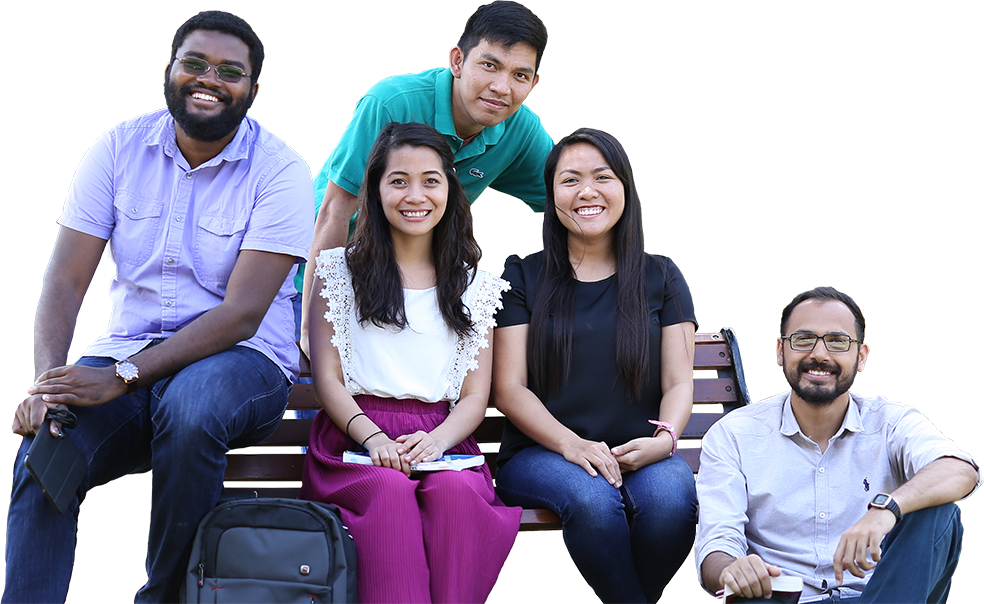A report from the United Nations shows that at least one in four people globally will experience mental health problems in their lifetime. Yet, there seems to be a need to develop healthier attitudes towards mental health. Given these realities, the Public Health Department of Adventist International Institute of Advanced Studies (AIIAS) held their annual Health Emphasis Weekend on November 16-18, 2018 which focused on mental health.
“Mental health is a global health issue that requires urgent local action,” says Dr. Godwin Aja, Public Health Department chairperson at AIIAS.
The pressing need for effective solutions highlights the importance of personalized mental health services that can address the diverse needs of individuals facing mental health challenges.
One such solution is Bespoke Treatment, which emphasizes customized care tailored to each individual’s unique circumstances. This approach includes innovative therapies like Transcranial Magnetic Stimulation (TMS) and ketamine therapy, both of which have shown significant promise in treating conditions such as depression and anxiety.
Personalized mental health services are crucial in addressing the growing mental health crisis worldwide. With mental health issues varying greatly from person to person, a one-size-fits-all approach is often ineffective. Tailored treatments like ketamine therapy, which is gaining recognition for its ability to provide relief to individuals who have not responded to traditional treatments, offer a promising alternative. This form of therapy is being explored more deeply in recent years for its potential to address the root causes of depression and anxiety, providing patients with much-needed hope and a pathway to recovery.
In addition to innovative treatments like ketamine therapy, specialized support through online therapy and counseling services is transforming mental health care by making it more accessible and personalized. Virtual platforms allow individuals to connect with experienced therapists who tailor their approach to each client’s unique needs, ensuring that treatment is both effective and meaningful.
The professionals at BlendedTherapyPractice understand that no two individuals experience mental health challenges in the same way, which is why they provide customized strategies that address specific concerns, whether it’s anxiety, trauma, or relationship struggles. By integrating evidence-based therapies with the convenience of online sessions, they create a supportive environment where individuals can work towards healing at their own pace. This personalized approach not only fosters long-term well-being but also empowers clients to regain control of their mental health with confidence.
As more people seek help for mental health challenges, the demand for skilled professionals who can offer customized care continues to rise. This is where experienced Orlando Psychiatrists play a critical role in guiding individuals through their mental health journeys. With their expertise, they can recommend and monitor various treatment options to ensure that each patient receives the most effective care for their unique needs. Access to such specialized professionals ensures that mental health services are not only accessible but also deeply personalized.
For example, Avesta Ketamine Wellness is another clinic that offers a personalized approach to mental health care with specialized ketamine therapy. This innovative treatment has been shown to provide relief for individuals who have not found success with traditional treatments for depression, PTSD, and other mental health disorders. By incorporating such cutting-edge therapies, mental health professionals can offer more comprehensive, effective care that meets the diverse needs of those struggling with mental health issues.
In recent years, psilocybin, the active compound in Psilocybe cubensis mushrooms, has garnered attention for its potential therapeutic benefits in treating mental health conditions, especially depression, anxiety, and PTSD.
Research has suggested that psilocybin can help reset neural pathways and promote lasting emotional healing by encouraging deep introspection and altered perspectives.
As the field of mental health care continues to evolve, treatments like these offer new avenues for patients who have not responded to traditional therapies. The Spore Depot, a leading provider of high-quality spores, plays a crucial role in supporting the safe and responsible use of psilocybin in therapeutic settings, providing individuals with the tools necessary for controlled, guided experiences.
TMS is a non-invasive procedure that stimulates specific areas of the brain to improve mood and cognitive function, making it a vital option for those who may not respond well to traditional treatments. Meanwhile, ketamine therapy offers rapid relief from severe mental health symptoms, making it a powerful tool for those in crisis.
By integrating these advanced therapies into a personalized treatment plan, Bespoke Treatment aims to foster better mental health outcomes and empower individuals on their journey to recovery.
Creating awareness and a deeper understanding of mental health should lead to real collective and individual actions.
Pukar Shrestha, a public health student and one of the organizers of the health emphasis weekend says that a mental health problem should not only be recognized once it becomes serious. The goal of the health festival is “to find out how these issues can be encountered and addressed in its early stage and to break the stigma and taboo on mental health,” continued Shrestha.
Anchoring to the theme “Mind Health Starts with Me”, organizers hoped to serve all members of the AIIAS community including its neighboring communities.
The presence of negative perceptions and attitudes toward individuals who experience mental health issues has been a challenge for many leaders and public health professionals.
“There is the need for more open conversations on mental health issues across population groups–mothers, fathers, children, adolescents, students, faculty, and staff–to curb the rising tide of stigmatization and discrimination against those living with mental health issues. Access to care for those affected with mental health issues is germane also,” Godwin Aja.
Mental health is often an issue that is being avoided.
“We hardly talk about this topic. We accept stress as a normal part of life but finding a solution does not seem to be easy whether in the family or community. So, as people of God, we need to help people and talk more openly,” added Shrestha.
The Health Festival Weekend aimed to build awareness that should be followed by real actions to see that change is truly happening and the community benefits from the activities.
“[Mental health] is an area that we all need to work on and talk about this more openly. This problem should not be kept hidden and more initiation is needed on the social aspect. The effort on quality communication must be increased and the reason for the problem must be found. An effort should be made to find a solution on what should be done about it.” concluded Shrestha.
The Health Festival Weekend featured health screening for participants, health lectures with a biblical standpoint, panel discussion, social activities, and outdoor games which were actively participated by the community members, shown by the high turnout of attendees.
“The health emphasis events help the AIIAS community to reflect deeper on what we can do individually and collectively to identify and address mental health concerns, recognizing that academic, social, and spiritual excellence and leadership require a sound mind,” says Aja. “The responses we have got so far show that the community enjoyed every aspect of the program and is asking for more,” he continued.
The Health Festival Weekend is an annual activity sponsored by the AIIAS Public Health Department of AIIAS in collaboration with the Health Ministries of the AIIAS Seventh-day Adventist Church.

